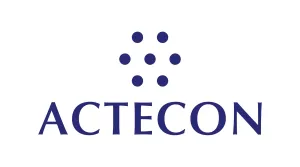Loyalty Came at a Price: The European Commission Fined Qualcomm € 997 Million for Abuse of Dominant Position
The American chip maker Qualcomm Technologies Inc. ("Qualcomm") on 24 January 2018 was fined € 997 million by the European Commission ("Commission") for abusing its dominance in the Long-Term Evolution ("LTE") baseband chipsets market by rendering significant payments to Apple and enjoying in return the benefit of exclusive supply of its chips (between 2011 and 20161>)2.
After the Commission's decision, shares of Qualcomm fell % 1.2 in pre-market trading in New York. "Qualcomm strongly disagrees with the decision and will immediately appeal it to the General Court of the European Union" the company said in a statement. According to company officials, the decision, "does not relate to Qualcomm's licensing business and has no impact on ongoing operations."3. Additionally, the Commission currently investigating Qualcomm's alleged predatory pricing (selling chipsets below cost) to drive out its competitor Icera Inc. out of market.
This is not the first time Qualcomm has been under scrutiny. In December 2016, Qualcomm was also fined by South Korea's Fair Trade Commission $ 854 million, for abusing its dominant position by foreclosing the market to its competitors. Similarly, in February 2015, Qualcomm settled to pay a $ 975 million fine in China for violating China's antimonopoly law by abusing its dominant position over cellular technology. As part of the settlement, Qualcomm also undertook to offer its licenses for third and fourth generation communications systems for high-speed wireless data to smartphones, at a sharp discount to what it charges companies elsewhere.
LTE Baseband Chipsets Market and Qualcomm's position
Baseband chipsets basically enables smartphones and tablets to connect to cellular networks. They are used both for voice and data transmission. The Commission determined that the entry to the LTE baseband chipsets market is difficult for new players as (i) more than 90% of chipsets sold worldwide are produced by Qualcomm, (ii) a comprehensive research and development is required to produce LTE baseband chipsets, and (iii) Qualcomm's protection through its intellectual property rights constitute a significant barrier. Accordingly, the Commission stated that Qualcomm held a dominant position in the global market for LTE baseband chipsets between at least 2011 and 2016.
Abusive Practices of Qualcomm
According to the Commission, abusive practices of Qualcomm consist of its anti-competitive agreements with Apple, which accounts for a significant share of LTE chipset demand. Agreements subject to investigation include clauses concerning Qualcomm's commitments to make significant payments to Apple on the condition that Apple would "exclusively" buy and use Qualcomm chipsets in its "iPhone" and "iPad" devices. Pursuant to their agreement, Qualcomm may demand these payments back if Apple commercially launches a device with a chipset supplied by any of Qualcomm's rivals. By taking Apple's potential of influencing other customers and manufacturers regarding procurement and design choices into consideration, the Commission established that Qualcomm's rivals were denied the possibility to compete effectively "no matter how good their products were".
Intel Judgement and Its Implications over the Qualcomm Case
Intel v. Commission4, which is considered to be one of the most important abuse of dominance cases to come before the courts in recent years, was decided by the Court of Justice of the European Union ("CJEU") in September 2017. It deals with the loyalty rebates granted by dominant companies and was of great significance over the Qualcomm Case as the CJEU found that exclusivity rebates granted by a dominant company are not per se anticompetitive and must be analysed whether they are capable of restricting competition (effects-based approach) 5.
The Intel v. Commission is considered to serve as a guidance for the Commission as to how an abuse of dominance should be determined. In this regard, in Qualcomm Case, the Commission proved its case by internal documents obtained from Apple, in which Apple considers seriously switching part of its baseband chipset requirements to Intel Corporation, Qualcomm's competitor. Evidence shows, however, that they decided not to switch to Intel because of the repayment obligation. As such, the Commission proved both anticompetitive behaviour of Qualcomm, and that such behaviour in fact restricted the competition within the duration of the infringement as Apple didn't switch to Intel Corporation due to the repayment obligation.
According to the Commission, Qualcomm's practices denied consumers and other companies the benefits of effective competition, namely more choice and innovation. With Qualcomm decision, it is also seen that even the giants, Apple and Intel in the present case, need competition rules to improve their product quality and innovation, and to reduce their costs.
Footnotes
1 The duration of the infringement established in the decision is five years, six months and twenty-three days.
2 http://europa.eu/rapid/press-release_IP-18-421_en.htm
4 Judgement of 6 September 2017, Intel v. Commission, C-413/14 P, EU:C:2017:632.
5 For further information on Intel v. Commission, please
refer to ACTECON's previous article entitled "ECJ's
Recent Intel Decision and Its Implications in Turkish Competition
Law Enforcement": http://www.mondaq.com/turkey/x/630612/
Antitrust+Competition/Recent+ECJs+Intel+Decision+And+Its+Implications+In+Turkish+Competition+Law+Enforcement
The content of this article is intended to provide a general guide to the subject matter. Specialist advice should be sought about your specific circumstances.


